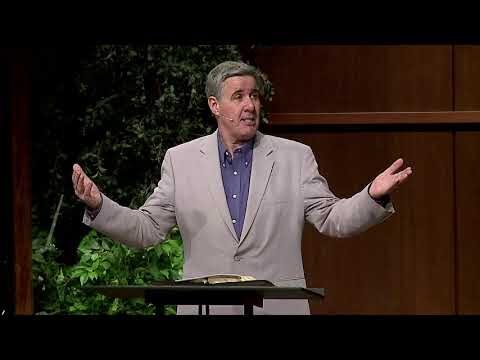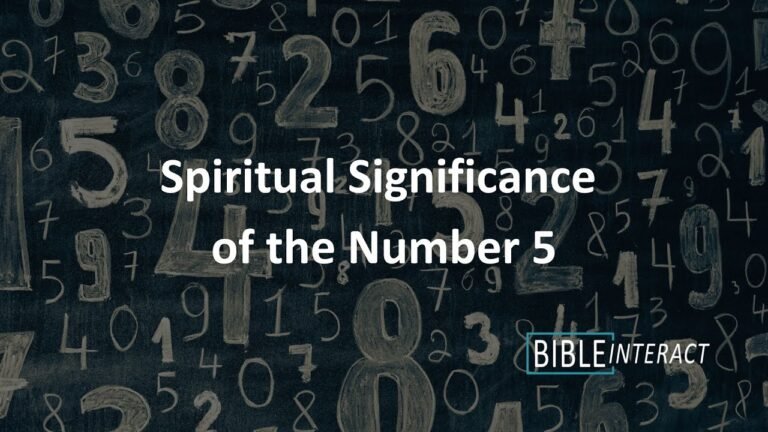The Spiritual Significance of Jesus and Bread
In the heart of Christian tradition lies a profound connection between Jesus and bread, symbolizing sustenance and spiritual nourishment. From the miraculous feeding of the 5,000 to the Last Supper, where bread became a powerful emblem of His body, this simple staple transcends its physical form to embody faith, sacrifice, and community. Exploring the significance of bread in the life of Jesus reveals not only the depth of His teachings but also the enduring impact of these symbols on believers around the world.
What is the significance of Jesus and bread?
Jesus and bread symbolize spiritual nourishment, as seen in the Last Supper, where Jesus identifies bread with His body, representing sacrifice and sustenance for believers.
What makes bread a symbol of Jesus?
Bread holds profound symbolic value in Christianity, representing not only sustenance but also divine provision. It evokes the miraculous moments when Moses provided manna to the Israelites in the desert, highlighting God’s care for His people. At the Last Supper, bread transformed into the body of Christ, deepening its significance as a bridge between the divine and humanity. Additionally, when Jesus multiplied bread to feed thousands, it emerged as a powerful emblem of community and sharing, reinforcing the idea that spiritual nourishment is meant to be shared among all.
What is the narrative surrounding Jesus and the bread?
In a remarkable demonstration of compassion and divine power, Jesus faced the challenge of feeding a vast crowd of over 5,000 people. Despite the disciples’ skepticism about the feasibility of providing enough food, a young boy presented five small loaves of bread and two fish. This seemingly insignificant offering became the catalyst for a miraculous event that would be remembered for generations.
With an attitude of gratitude, Jesus took the boy’s humble gift, blessed it, and began distributing the food. Miraculously, everyone was fed, and not only that, but there were twelve baskets of leftovers collected afterward. This story highlights the profound impact of faith and generosity, reminding us that even the smallest contributions can lead to extraordinary outcomes when placed in the hands of someone who believes in the power of abundance.
What is Jesus’s teaching regarding being the bread?
In a profound declaration, Jesus identifies himself as the “bread of life,” symbolizing sustenance far beyond the physical realm. This powerful metaphor emphasizes that those who seek him will find not only nourishment for their bodies but also fulfillment for their souls. By inviting individuals to come to him, he assures that their spiritual hunger and thirst will be quenched, offering a promise of eternal satisfaction and peace.
This message resonates deeply, suggesting that true contentment stems from a relationship with him rather than material possessions. Jesus challenges us to explore the depths of our spiritual needs, encouraging a shift from mere survival to a thriving existence grounded in faith. In this way, he invites everyone to discover that the essence of life is found in a connection with him, transcending the fleeting nature of worldly desires.
Nourishing the Soul: Exploring Jesus’ Connection to Bread
In the teachings of Jesus, bread emerges as a profound symbol of sustenance and spiritual nourishment. Just as physical bread sustains the body, Jesus offers himself as the “Bread of Life,” inviting us to partake in a deeper relationship with the divine. This connection transcends mere consumption; it embodies the essence of faith, hope, and community. As believers gather around the table, they share not only a meal but also stories of grace, love, and transformation, reinforcing the idea that true nourishment comes from unity in Christ.
Moreover, the act of breaking bread serves as a reminder of Jesus’ sacrifice and the promise of eternal life. In the Gospels, we see him using simple loaves to perform miracles, illustrating that even the most ordinary elements can carry extraordinary significance. This sacred act of sharing bread encourages us to reflect on our own lives, urging us to seek deeper connections with God and with one another. By embracing this spiritual practice, we cultivate a sense of belonging and purpose, allowing the essence of Christ’s love to fill our hearts and guide our actions in the world.
Breaking Bread: A Journey Through Faith and Symbolism
The act of breaking bread transcends mere sustenance; it is a profound ritual steeped in faith and symbolism. Across cultures and religions, sharing bread represents community, unity, and the divine connection between people and their beliefs. From the Last Supper to contemporary gatherings, this simple act transforms into a powerful reminder of shared values and collective strength, inviting individuals to reflect on their spiritual journeys while fostering a sense of belonging.
As communities gather to break bread, the experience becomes a tapestry woven with stories, traditions, and hopes. Each loaf carries the weight of history and the promise of connection, creating a sacred space where people can come together to celebrate life’s milestones and navigate its challenges. This ritual not only nourishes the body but also feeds the soul, allowing individuals to bond over shared experiences and mutual understanding, ultimately reinforcing the ties that bind them.
In the heart of these gatherings lies the essence of faith, where the simple act of sharing a meal evolves into a profound expression of love and gratitude. Breaking bread invites us to embrace our differences while celebrating our common humanity, reminding us that we are all part of a larger narrative. Through this journey, we discover that the act of coming together, breaking bread, and sharing in the richness of our diverse traditions is what truly nourishes our spirits, fostering a deeper connection to ourselves and one another.
The Bread of Life: Jesus’ Message of Spiritual Sustenance
In a world filled with fleeting pleasures and temporary satisfactions, the message of Jesus as the Bread of Life offers a profound invitation to seek deeper nourishment for the soul. This metaphor speaks to the essential nature of spiritual sustenance, highlighting that true fulfillment comes not from material possessions but from a relationship with the divine. By embracing this spiritual bread, individuals discover a source of strength and comfort that transcends their circumstances, providing hope and purpose in life’s trials.
Jesus’ teachings encourage believers to cultivate a deeper understanding of their spiritual needs, reminding them that just as bread sustains the body, faith nurtures the spirit. This relationship is not merely transactional; it invites a transformative journey where individuals can experience renewal and growth. By engaging with the Bread of Life, people are empowered to share this sustenance with others, fostering communities grounded in love, compassion, and support.
Ultimately, the message of Jesus as the Bread of Life serves as a guiding light for those seeking meaning in their lives. It beckons us to move beyond the superficial and embrace a profound connection with God and each other. In this way, spiritual sustenance becomes a communal experience, enriching not only our own lives but also the lives of those around us, forging bonds that reflect the divine love at the heart of His message.
Divine Nourishment: Understanding Jesus and the Eucharist
In the heart of Christian faith lies the profound mystery of the Eucharist, a sacred practice that embodies the divine nourishment offered by Jesus Christ. Through the act of communion, believers partake in a tangible connection to Jesus’ sacrifice, fostering a deep spiritual bond that transcends time and space. This ritual not only commemorates the Last Supper but also invites individuals to reflect on their own spiritual journeys, encouraging a transformative experience of grace and unity within the community of faith.
Understanding the Eucharist as divine nourishment reveals its significance beyond mere ritual; it is an invitation to embody Christ’s love and compassion in everyday life. By receiving the Body and Blood of Christ, believers are called to become vessels of that same love, serving others and sharing the message of hope and redemption. This sacred meal empowers individuals to live out their faith actively, nurturing both their souls and the world around them, fostering a deeper understanding of the interconnectedness of humanity and the divine.
From Loaves to Lessons: The Spiritual Power of Bread in Christianity
Bread has long served as a fundamental element in Christian symbolism, representing not just sustenance but also spiritual nourishment. In the sacred act of communion, believers partake in the body of Christ, transforming a simple loaf into a profound reminder of faith, sacrifice, and unity. This ritual highlights the importance of bread as a bridge between the physical and the divine, emphasizing that, much like bread sustains our bodies, faith nurtures our souls.
Beyond the altar, bread manifests in the teachings of Jesus, who drew parallels between bread and the essence of life itself. The phrase “I am the bread of life” underscores the idea that spiritual fulfillment comes from a deep connection with the divine. This powerful imagery invites Christians to reflect on their relationship with God and encourages them to share their blessings with others, much like breaking bread together fosters community and compassion. Through these lessons, bread transcends its material form, embodying the enduring spirit of hope, love, and generosity at the heart of Christianity.
The profound connection between Jesus and bread transcends mere sustenance; it symbolizes spiritual nourishment and unity. From the Last Supper to the countless references in scripture, bread serves as a powerful reminder of faith, community, and the promise of life. In embracing this divine relationship, we find not only a call to share and serve but also an invitation to deepen our understanding of love and sacrifice in our daily lives.






